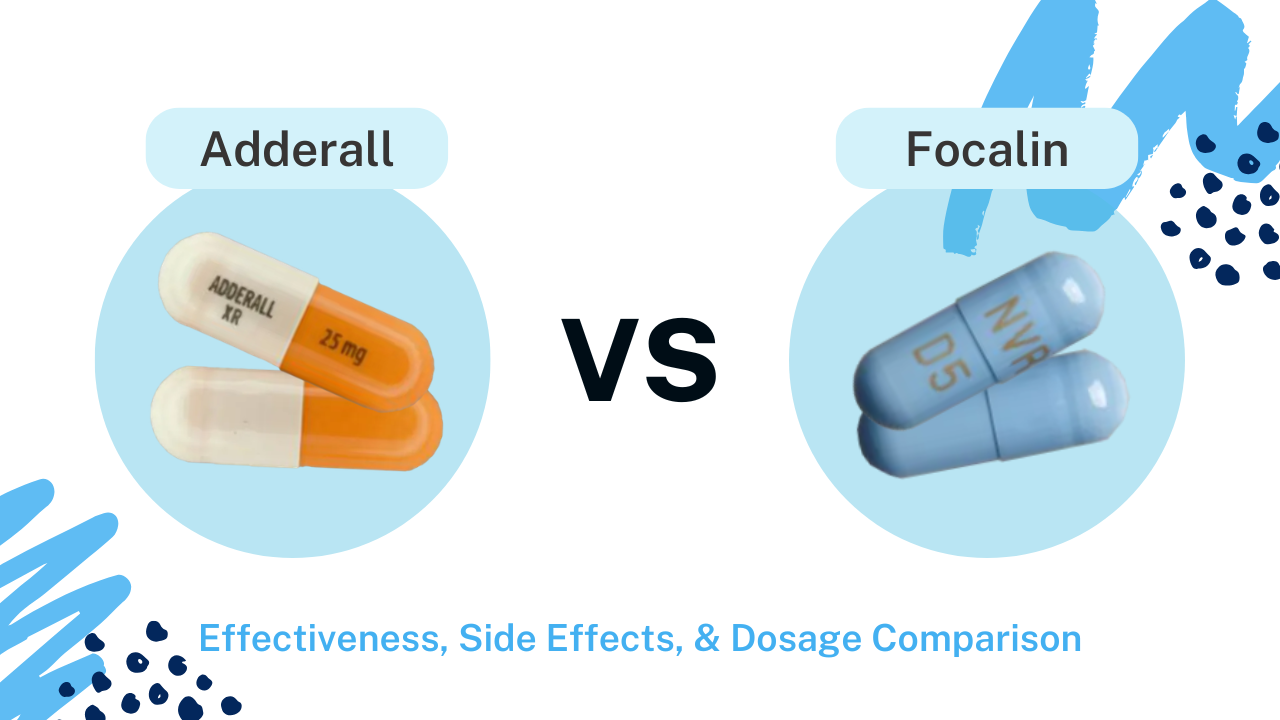Same Day Online ADHD Diagnosis
ADHD assessment?
Why ADHD Medication Law Clarity Matters in California
Telehealth treatment for ADHD in California has increased since COVID-19, along with an increase in stimulant medications being prescribed. Many telehealth patients believe they receive better care through virtual visits. A McKinsey study found that 55% of patients reported being more satisfied with their telehealth visits than with their in-person appointments.
Telehealth is not just offering convenience; many people are actually experiencing better outcomes using it. This is also true for mental health patients, including individuals with ADHD, particularly within certain groups. Some mental health providers agree with this perspective. For example, a group of mental health providers suggests that telepsychiatry may be a better option than in-person assessments for certain children and adolescents.
While telehealth treatment for ADHD is a game changer for many, the increase in telehealth platforms prescribing these medications has led to some concerns surrounding legality, safety, and compliance with various state and federal laws.
Some platforms have been caught "pushing" these medications without following regulations, and in some cases, even without a proper diagnosis.
When issues like over-prescribing and misdiagnosing occur, it can cause challenges for people looking for a legal telehealth ADHD prescription in California. Now, individuals looking for telehealth treatment are concerned that they may lose their medication if they work with an illegitimate platform.
We will address ADHD medication laws in California, including concerns regarding legality, safety, and compliance. Then you can learn how to get ADHD meds legally in California and become more informed. You should choose an ADHD treatment platform that is legally compliant to avoid any potential issues down the road.
Overview of Common ADHD Medications and Their Regulation
There are two types of medications used for ADHD treatment: stimulants and non-stimulants.
Stimulants
Stimulants are typically the first line of treatment for ADHD. These types of medications help manage symptoms of hyperactivity, impulsiveness, and inattention. There are two classes of stimulants commonly used to treat ADHD symptoms: amphetamines, such as Vyvanse and Adderall, and methylphenidates, like Concerta and Ritalin.
Non-Stimulants
There are also non-stimulant treatment options for ADHD. These medications are great for young children or adults where stimulant medications are not the best choice. Two popular non-stimulant medications for ADHD are norepinephrine reuptake inhibitors and alpha-adrenergic agonists. It's important to note that stimulants are faster-acting, while non-stimulants take a little time to build up in the body before showing significant effects.
Schedule II Classification for Stimulants
If you are looking for an Adderall prescription online in California, there are some additional rules that providers must follow. Stimulant medications like Adderall, Ritalin, and Vyvanse are Schedule II controlled substances. According to the DEA, Schedule II drugs have a high risk for abuse and dependence.
Because of these concerns, simulant medications are not given automatic refills. A new stimulant medication via telehealth in CA must be given each month. California also requires electronic prescriptions for all controlled substances, including stimulants.
Can Telehealth Providers Prescribe ADHD Meds in California?
What do the ADHD medication laws in California have to say about telehealth providers prescribing ADHD meds?
California Laws on Prescribing Stimulants via Telehealth
Current law in California allows the prescribing of stimulants via telehealth under specific conditions.
These include the following:
- All controlled substance prescriptions must be transmitted electronically.
- Controlled substance prescriptions such as stimulants must be reported to the Controlled Substance Utilization Review and Evaluation System (CURES) within one full day after the patient receives it.
- California also requires informed consent from patients to provide services via telehealth.
- Providers must evaluate patients with the same standard of care used in traditional in-person settings when using telehealth.
- Providers prescribing controlled substances via telemedicine in California, including stimulants like Adderall, must be licensed to practice in California.
The Ryan Haight Act
The Ryan Haight Act is a federal law in the United States, established in 2008, that governs the sale of prescription medications and controlled substances over the internet. A major aspect of this act is that an in-person assessment is required before these medications can be prescribed.
During COVID-19, people were finding it difficult to attend their doctors' appointments in person. So to remedy this, the DEA created a temporary rule allowing providers to prescribe controlled substances via telehealth without in-person visits. This rule has been extended until December 31, 2025, allowing providers to prescribe controlled substances, such as stimulant medications, via telemedicine without requiring in-person visits.
What California Patients Must Do to Qualify Legally
In order to qualify for a telehealth ADHD prescription in California, patients first must undergo an initial video evaluation. Synchronous telehealth is required, which means that real-time audio and video communication is needed and is considered equivalent to an in-person evaluation.
This evaluation is a comprehensive assessment to determine if you have ADHD. A telehealth evaluation must be done by a licensed provider in California.
Documentation is a crucial component of California's telehealth ADHD regulations. Your provider must determine that you need ADHD medication during your evaluation and thoroughly document their findings. They will need to note that you meet the diagnostic criteria for ADHD as outlined in the DSM-5.
Healthcare providers will also collect historical information about your symptoms dating back to your childhood. If you have any supporting documentation that would help, such as school records or previous diagnosis and assessment data, then you can bring these to discuss or send them to your provider before or after your evaluation.
CURES database
The CURES database is California's Prescription Drug Monitoring Program (PDMP). It maintains a record of all controlled substances, including Schedule II stimulant medications, in the state. Providers, pharmacies, and clinics must report dispensing of these medications within one full day. This database enables providers to research a patient's past prescribing history before prescribing these medications.
The goal of the PDMP is to provide an overview of controlled substance use in order to reduce substance abuse in the state. Before you can receive stimulant medication, your provider will need to check the CURES data
base to view your controlled substance history to make an informed decision to prescribe. Healthcare providers must check the California PDMP for ADHD prescriptions and other controlled substances every six months, if continuing to prescribe you stimulant medication.
Red Flags: Avoiding Non-Compliant Telehealth Services
Here are some of the common red flags to help you avoid non-compliant telehealth services when researching ADHD medication laws in California.
1. Providers Offering Immediate Stimulant Medications
It's crucial to undergo a comprehensive assessment before being diagnosed with ADHD. Be cautious of any provider who offers ADHD medication without first evaluating your need.
2. Their Website Features Inconsistent Information
Be cautious of websites and providers whose statements clearly contradict current guidelines and recommendations. For example, if a provider is offering ADHD medication without a proper evaluation, then you know it isn't a legitimate ADHD treatment provider.
3. Unlicensed Providers
It is against ADHD medication laws in California to practice without a license. Ensure that you only work with licensed professionals. You should always verify a provider's credentials with the California Medical Board.
4. No Follow-Up Care
Any ADHD treatment provider that doesn't offer follow-up appointments is not a legitimate ADHD treatment telehealth provider. ADHD is a complex mental health issue and requires follow-ups and aftercare to ensure that medication and therapy are working correctly.
How to Find Legal, Trustworthy ADHD Telemedicine in California
It's important to find legal and trustworthy ADHD telemedicine in California. If you know what to look for in a reputable provider, it will make the search much easier. You should consider the following:
- Verify licensing: Ensure that the provider is licensed to practice in the state of California. Some platforms provide this information.
- Research telehealth platforms: Identify telehealth platforms or providers that mention familiarity with California laws.
- Ask about their medication prescribing process: Find out if they conduct thorough evaluations before they prescribe medication; if not, you should probably avoid using them.
- Ask about the total costs: Find out what the initial costs and ongoing costs will be, and whether insurance is accepted.
- Ask if they are familiar with ADHD: It's best to choose a provider who is trained in mental health so they can accurately diagnose you.
- Ask about their diagnosis process: Find out what the complete process looks like from evaluation to follow-up care.
- Ask about follow-up appointments: Inquire if they offer follow-up appointments and, if so, what they entail.
- Ask about parent education: If you are seeking ADHD treatment for your child, ask if they offer any parent education programs.
- Find out if they can provide controlled substances specifically in California: You want to make sure the platform you choose is licensed to treat ADHD in the state of California.
Benefits of Working With Providers Familiar With CA-Specific Rules
One of the most obvious benefits of working with a provider that is familiar with California rules and regulations is that they will be legally compliant. These providers will be licensed, obtain informed consent, and provide the same standard of care that they would provide in person.
Providers who are aware of California laws also understand the importance of confidentiality and privacy, so they work with HIPAA-approved telecommunication technology.
Therapists and psychologists practicing in California are also required to take a 3-hour Telehealth Law and Ethical Issues course to stay up-to-date on telehealth laws, including both federal and state-specific regulations.
What to Expect from Your Telehealth Treatment Plan
Let’s look at what a legitimate telehealth treatment plan for ADHD in California will look like.
Evaluation
After completing all your important paperwork, the first step in your ADHD treatment process is to undergo an evaluation via telehealth. This will consist of a live video session with a licensed mental health provider. Your provider will use this time to determine if you have ADHD. They will use various diagnostic tools, assessments, and review your questionnaire answers, while also observing any behaviors you exhibit during the process.
This appointment is an opportunity for you to share your experiences, symptoms, and family history with your healthcare provider. They need to determine if your symptoms meet enough criteria from the DSM-5 for an ADHD diagnosis. They also need to consider if your symptoms might be due to another mental health condition, as many symptoms can overlap with co-occurring disorders.
Monitoring
If you are diagnosed with ADHD, the next step in the process will be to monitor you periodically during your treatment. During this stage, your provider will discuss any potential side effects, adjust the medication dosage if necessary, and check in with you to see how you're doing.
You will typically also have therapy sessions during this stage to help you manage symptoms. You'll most likely have some feedback forms or questions to answer after each session to help the therapist gauge your progress.
Follow-ups
Once you and your provider get your treatment plan exactly where it needs to be, you can move on to follow-up appointments. During this stage of ADHD treatment, you will most likely already have your medication where it should be and be attending therapy sessions as needed.
During follow-up appointments, your provider will continue to monitor your progress, offer a supportive environment for you, and learn about any new side effects or concerns that you may have. Follow-up appointments can be more spaced out, often occurring every 90 days.
Prescription Renewals
ADHD medication can only be prescribed for a maximum of 3 months at a time, requiring a new prescription each month. So, you will have to have various prescription renewals throughout your treatment.
Depending on your provider, you may still need to have a check-in appointment every month or every three months to get your medication refilled. Most platforms, such as ADHD Advisor, offer friendly reminders for prescription refills directly within the app, allowing you to schedule your appointments in advance.
Insurance and ADHD Medications in California
Many people want to know if telehealth ADHD treatment in California is covered by insurance. Let’s take a look.
Will Insurance Cover Telehealth ADHD Treatment and Medication?
The federal Mental Health Parity and Addiction Equity Act (MHPAEA) states that insurance providers are not allowed to impose any additional limits on mental health treatment. California amended its own Mental Health Parity Act in 2020, requiring insurance providers to offer full coverage for mental health conditions.
So, the answer is yes, ADHD telehealth treatment is usually covered by insurance. However, it's important to note that coverage depends on the specific plan you have. Also, certain pharmacies and telehealth platforms may not accept insurance at all, offering a payment subscription that is often more affordable than traditional in-person care.
You should check with your chosen telehealth provider to determine if they accept insurance or if they have an out-of-pocket pricing structure. If they accept insurance, check with your insurance provider to determine what your plan covers and what your copays or deductible will be for ADHD treatment. Paying for telehealth treatment out of pocket can sometimes be cheaper than the deductible, so it's essential to research your options.
FAQs
Is it legal to get Adderall through telehealth in CA?
In California, it is legal to receive Adderall through telehealth if your provider adheres to federal and state regulations. You will first need to undergo a thorough evaluation by a licensed mental health professional via telehealth and receive a diagnosis for ADHD as per the DSM-5.
Does California allow first-time stimulant prescriptions online?
Yes, you can receive first-time stimulant prescriptions online. However, you must meet certain conditions as stimulants are considered controlled substances.
An in-person appointment was traditionally required before receiving stimulant medications via telehealth. However, due to recent COVID-related extensions, an in-person evaluation is no longer necessary. This extension will remain in effect until December 31, 2025. However, it's important to note that telehealth laws continue to grow and change, so stay up to date with your current state and federal laws.
Do all providers report to California's CURES PDMP?
All providers who prescribe Schedule II controlled substances, including stimulants, must report to CURES, which is California's Prescription Drug Monitoring Program (PDMP). Providers must consult CURES when they write a new prescription for a stimulant medication and again in six months if the patient is still receiving the medication.
Conclusion: Stay Legal, Stay Informed
Telemedicine ADHD treatment is a convenient and easy way to manage symptoms of ADHD for California residents. It's essential to find a provider or platform that's compliant with both federal and state laws. It's also important to stay informed and choose competent providers for your ADHD treatment.
Make sure that your provider has a valid California license to practice and does a thorough evaluation, along with proper follow-up care. By choosing legally compliant providers or platforms, you ensure continued access to your medication or care, avoiding disruptions caused by the shutdown of illegitimate platforms.
There are numerous benefits of choosing legal ADHD telehealth providers in California. First, you can avoid getting into traffic jams or driving long distances to see your provider. With telehealth for ADHD, you can schedule appointments around your busy schedule and still receive the same standard of care that you would if you went into an office.
Telehealth also offers a more discreet and private way to manage your mental health. Finally, telehealth treatment for ADHD exposes you to a variety of professionals, including specialists who know ADHD treatment but may not live close to you.
If you're looking for a legally compliant online platform for ADHD treatment, ADHD Advisor has you covered. We connect you with licensed providers in California who understand the legal framework, ensuring you receive the care you deserve without ever having to leave your home.





.svg)
















